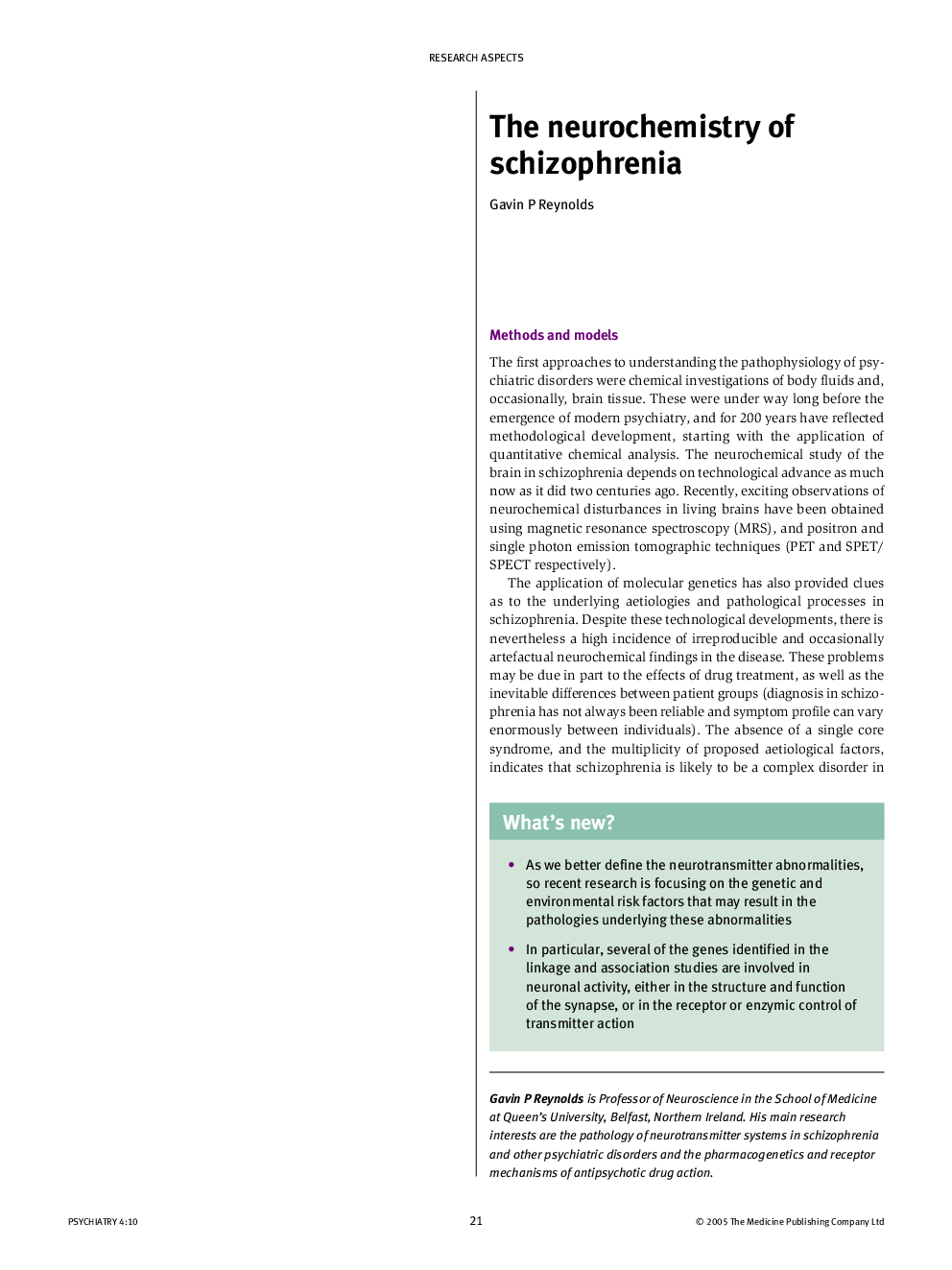| Article ID | Journal | Published Year | Pages | File Type |
|---|---|---|---|---|
| 9381789 | Psychiatry | 2005 | 5 Pages |
Abstract
For several decades the main focus of neurochemical research in schizophrenia has been on the dopamine hypothesis. Certainly the primary action of antipsychotic drugs is to diminish dopamine D2 receptor-mediated neurotransmission. Although there is little indication of a primary disturbance in dopamine neurotransmission in the disease, recent functional neuroimaging studies have demonstrated an increase in stimulated release of dopamine in the brain in schizophrenia. It seems likely that this neurochemical correlate of positive symptoms might be secondary to disturbances in other neurotransmitter systems. Evidence from in vivo imaging and post mortem studies of the brain in schizophrenia, as well as from experimental models, points to dysfunction of both GABA- and glutamate-containing neurons. Such regional-specific neuronal abnormalities underlie negative features and cognitive deficits, as well as contributing to a disinhibition of sub-cortical dopamine. Several of the recently identified genetic risk factors for schizophrenia may also influence neurotransmitter and synaptic function. Deficits of GABAergic neurons may relate to a neurodevelopmental aetiology of the disease, and experimental models suggest that these deficits could result in progressive damage to other neuronal systems. Understanding these processes may lead to improved pharmacotherapeutic approaches to alleviating the symptoms of schizophrenia, particularly those negative and cognitive symptoms that are poorly addressed by current drug treatment.
Keywords
Related Topics
Health Sciences
Medicine and Dentistry
Psychiatry and Mental Health
Authors
Gavin P Reynolds,
